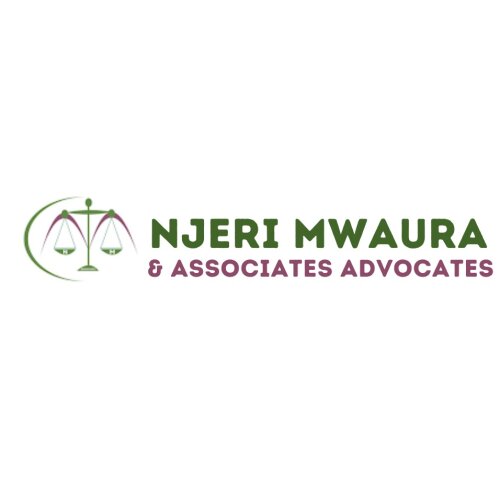Best Art & Cultural Property Law Lawyers in Ruiru
Share your needs with us, get contacted by law firms.
Free. Takes 2 min.
List of the best lawyers in Ruiru, Kenya
About Art & Cultural Property Law in Ruiru, Kenya
Art & Cultural Property Law in Ruiru, Kenya, deals with the protection and regulation of artworks, artifacts, and cultural heritage items. This area of law encompasses various elements, including ownership rights, export restrictions, and the preservation of cultural sites. Due to Kenya's rich cultural heritage, it is critical to have specific legal frameworks that ensure the protection and integrity of cultural properties. Within Ruiru, these laws help maintain the town's cultural significance and regulate how cultural artifacts are managed and preserved.
Why You May Need a Lawyer
There are several situations where individuals or organizations might require legal assistance in the field of Art & Cultural Property Law. For instance:
- Ownership Disputes: Addressing disagreements over the rightful owner of a piece of art or cultural artifact.
- Export and Import Compliance: Navigating the complex regulations around the legal export or import of cultural property.
- Cultural Property Theft or Fraud: Handling cases of stolen artifacts or fraudulent sales of art pieces.
- Preservation and Conservation: Ensuring compliance with laws related to the preservation of cultural sites and objects.
- Intellectual Property Issues: Resolving copyright or trademark issues related to artistic creations.
Local Laws Overview
The local laws concerning Art & Cultural Property in Ruiru are guided by national legislation with local modifications as necessary. Key aspects include:
- Antiquities and Monuments Act: This Act provides for the preservation and protection of ancient monuments and artifacts of historical or cultural significance.
- National Museums and Heritage Act: Governs the heritage bodies, providing mechanisms for the protection and conservation of national collections.
- Intellectual Property Act: Addresses the rights of artists and creators, protecting their intellectual creations from unauthorized use.
- The Ruiru Municipality Cultural Policies: Tailors specific protections and plans to preserve the local cultural heritage within Ruiru.
Frequently Asked Questions
What qualifies as cultural property under Kenyan law?
Cultural property typically includes artifacts, monuments, and natural sites of historical, architectural, or archaeological interest.
Can private individuals own cultural artifacts?
Yes, private ownership is allowed, but such items must comply with the National Museums and Heritage Act and not classified as protected under specific cultural heritage regulations.
What should I do if I discover an artifact in Ruiru?
The discovery should be reported to local authorities or the National Museums of Kenya for proper evaluation and documentation.
Are there restrictions on exporting art from Kenya?
Yes, exporting cultural heritage items is highly regulated, requiring permits from relevant authorities to prevent illegal export and loss of cultural heritage.
How does Kenya handle stolen art repatriation?
Kenya cooperates with international organizations like Interpol to track and repatriate stolen art and artifacts.
What legal protections are there for artists in Ruiru?
Artists in Ruiru are protected under the Intellectual Property Act, allowing them to safeguard their creative works from unauthorized use.
Can cultural property be commercially used?
Yes, but commercial use must respect existing rights and regulations, ensuring no harm to the cultural value or significance of the property.
What penalties exist for violating art and cultural property laws in Kenya?
Penalties can include fines, imprisonment, and the forfeiture of the artifacts or profits gained from illegal transactions.
How can I prove ownership of a cultural artifact?
Documentation such as purchase receipts, inheritance records, or official registrations can help establish ownership.
Is it possible to transfer ownership of a cultural property?
Ownership transfer is possible but may require official government approval, depending on the item's classification and significance.
Additional Resources
For further assistance, consider reaching out to the following resources:
- National Museums of Kenya: Offers guidance on cultural heritage preservation and legal requirements.
- Kenyatta University School of Law: Provides information on local law courses and resources related to cultural property law.
- Kenya Copyright Board (KECOBO): Regulates and protects intellectual property rights within the creative industries.
- Ruiru County Government: Can provide local insights and regulations relevant to art and cultural properties.
Next Steps
If you need legal assistance in Art & Cultural Property Law, consider the following steps:
- Research and Documentation: Gather all relevant information and documents related to your case or query.
- Consult a Specialist Lawyer: Seek a consultation with a lawyer specializing in art and cultural property law for professional advice.
- Contact Local Authorities: Engage with local government bodies for guidance or to file necessary legal paperwork.
- Utilize Online Resources: Leverage online platforms and databases that offer insights into cultural property laws and legal precedents.
Lawzana helps you find the best lawyers and law firms in Ruiru through a curated and pre-screened list of qualified legal professionals. Our platform offers rankings and detailed profiles of attorneys and law firms, allowing you to compare based on practice areas, including Art & Cultural Property Law, experience, and client feedback.
Each profile includes a description of the firm's areas of practice, client reviews, team members and partners, year of establishment, spoken languages, office locations, contact information, social media presence, and any published articles or resources. Most firms on our platform speak English and are experienced in both local and international legal matters.
Get a quote from top-rated law firms in Ruiru, Kenya — quickly, securely, and without unnecessary hassle.
Disclaimer:
The information provided on this page is for general informational purposes only and does not constitute legal advice. While we strive to ensure the accuracy and relevance of the content, legal information may change over time, and interpretations of the law can vary. You should always consult with a qualified legal professional for advice specific to your situation.
We disclaim all liability for actions taken or not taken based on the content of this page. If you believe any information is incorrect or outdated, please contact us, and we will review and update it where appropriate.








